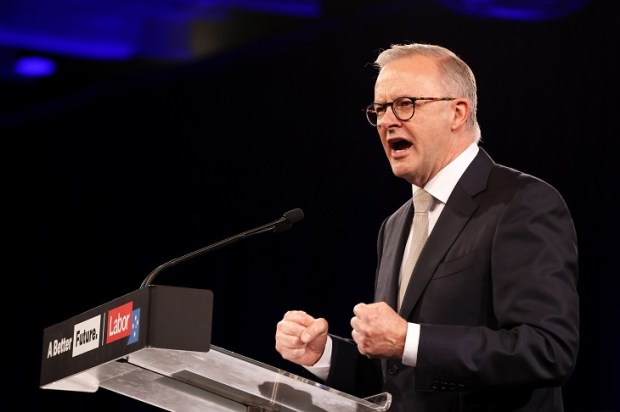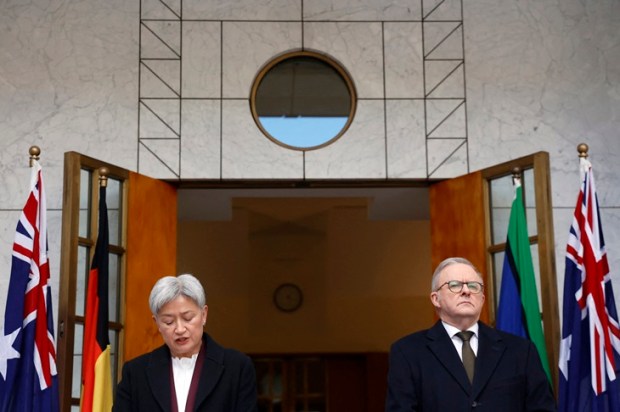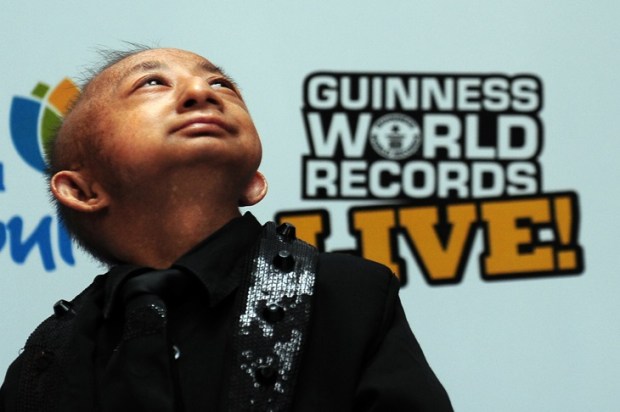Australian politicians live in an alternative universe, a privileged cocoon that separates them from public opinion. The pub test is their finger on the pulse.
The average bloke in the pub is a bit like Yabba, the cricket fan immortalised in a statue at the SCG. He is the VIP who decides whether ideas, issues, and indeed politicians pass muster. Let’s meet Yabba.
Politicians view Yabba as the bloke they want to get through to. The first challenge is to penetrate his awareness, the second to persuade him, and the third is to move him to advocate on their behalf. But it’s not easy getting through to Yabba.
The pub test demands that ideas be manicured to Aussie-compatible values and presented in sharp common-folk language in a laconic manner. If the words aren’t shortened, Yabba will sniff out highfalutin pretension or be alienated because he doesn’t understand them. Yabba didn’t like Turnbull or Rudd. If their words have a sniff of Woke-ism, Yabba will regurgitate his beer.
It’s little wonder that the country with the pub test has a Prime Minister who speaks like he’s trying to sober up and an Opposition Leader who plays the roadside policeman praying to breath-test him.
Of course, there is no suggestion that Albo has an alcohol problem, but he would be incomprehensible if he spoke in his off-camera voice. People with hearing disabilities sometimes find his speech hard to bear. On the other hand, people can relate and identify with him. He’s the first Prime Minister since Bob Hawke to be widely considered a good bloke. If his speech style is an electoral asset, he owes a debt to Les Patterson and Barry Humphries who trained us to enjoy encounters with poor speakers.
Dutton really does sound like your local cop. He talks with minimal facial expression and speaks from the chest in a bullish way. There is very little variation in his speech colour which reveals a gulf between his delivery and emotions, giving him room to hide his personality behind his stony exterior. He can speak an endless monotonous sentence and with linear simplicity calls a spade a spade in the hope that it gives him authenticity. But there is a trust issue with Dutton. His tone of voice gives the impression that his true opinions and values would not be palatable to the public ear. In times of peace and prosperity he has no appeal but in uncertain and insecure times, he may thrive. He’s not adverse to a good scare campaign.
This raises a long-standing issue. Australian parliamentarians have the worst speaking skills in the English-speaking world; our country still has a national speech impediment.
Yet this is not a class problem. In fact, defective speech has been chronically unaddressed for so long it has developed into a communications crisis across the board common among judges, lawyers, doctors, scientists, broadcasters, academics, sports stars, and teachers.
If you don’t think this is a serious problem consider this. There are some professions where clarity of speech and effective communication is critical. Would you be comfortable with any of the following professionals having the speech skills of an adolescent?
Pilots, air traffic controllers, doctors, emergency workers, teachers, aged care workers, people who work with dangerous goods, even lollypop men and women. Communication failures can mean the difference between life and death.
It is imperative that these professionals understand and speak English proficiently. There should be easy access to communication enhancement programs to maintain basic safety standards and support these people.
On a less critical but still functional level, it is now widespread practice for businesses to entrust their public relations to people with poor command of English and to entrap them with the responsibility of verbally relating to the public when ill-equipped to do so. This communication hiatus is traumatic for workers and incredibly frustrating for the public and bad for business.
There is also a disturbing trend that has led to broadcasting standards plummeting at the ABC. For nearly a century the ABC was committed to leading the standard of excellence in the spoken word. Clarity was king, voices were mellifluous, and listening to ABC newsreaders and broadcasters was a listening pleasure despite the stiff upper lip. But this new age of political correctness has the ABC obsessing with other priorities – and has dropped its hard-earned standards (and its summer cricket coverage) in the name of diversity. Yes, ABC culture now considers poor spoken English as diverse and acceptable, even preferable to well-spoken English.
Calling for communication standards to be improved is not cultural cringe, but a passionate plea for our nation to evolve out of this communications rut. We need to pursue excellence just as the ABC used to. It’s not so difficult to speak English with clarity but will only happen when our professional public speakers lead from the front, not from the front bar.
Dean Frenkel is a communications expert who has worked for politicians and lectured in public speaking and communications at Victoria University.

























